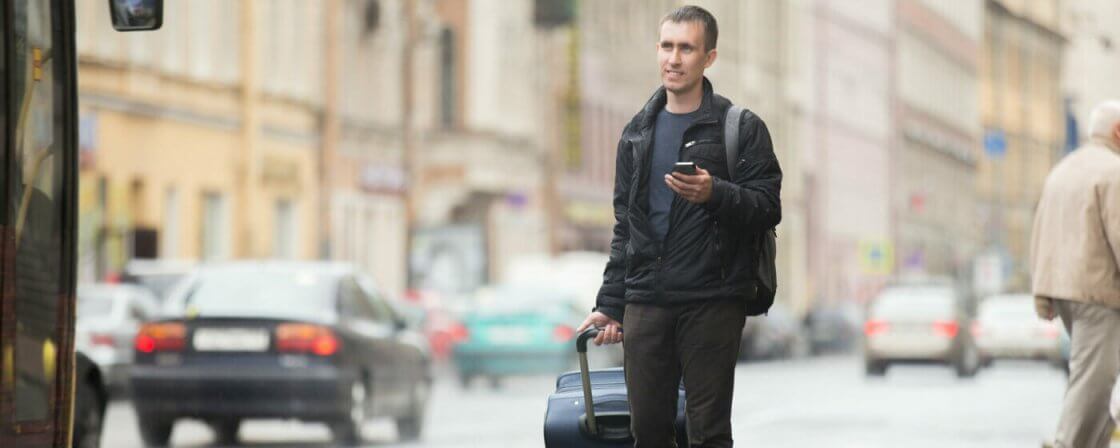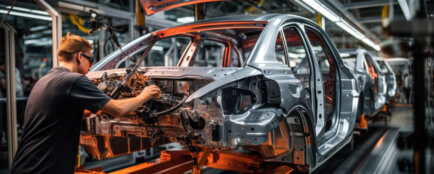Business trip vs. working hours
If you spend two days on a business trip, it will probably not be treated as many hours of overtime. This is because you are not usually working continuously. A certain part of the day on a business trip is spent driving or travelling in general, and only a smaller part of the day is spent actually doing the work, e.g. a business meeting in another city. The rest of the day is filled with things like rest, sleeping in a hotel, etc.
Are you solving a similar problem?
Are you dealing with a legal problem related to a business trip?
Describe your problem to us and we will help you. You will have a response from one of our attorneys within 48 hours.
I want to consult
- When you order, you know what you will get and how much it will cost.
- We handle everything online or in person at one of our 6 offices.
- We handle 8 out of 10 requests within 2 working days.
- We have specialists for every field of law.
So what rewards do you get from your business trip?
Your business trip and your normal working hours do not have to overlap. Often, you will leave home much earlier than you would for a normal work trip, or you may stay overnight and spend much more time away from home than usual. What about pay for work in this case?
On the positive side, even if you spend just one hour of your entire journey on real work (e.g. a meeting), your pay or salary will not be reduced. This is not your fault, of course, and the law says it is an obstacle to work on the part of the employer. So you don’t have to do anything extra and you are entitled to be compensated for your wages or salary at the rate of your average earnings.
In addition, your employer must, of course, reimburse you for your travel expenses, which are mainly travel and meal expenses. However, if you are planning to go to the most expensive restaurant in town and then present your boss with a receipt, we must disappoint you. As a rule, the amount of meal allowances is set by individual employers themselves; the Labour Code only sets a lower limit for the business sector.
The amount of the meal allowance is changed annually by decree of the Ministry of Labour and Social Affairs. The employer is obliged to provide the employee with at least the minimum statutory rate of meal allowance, the specific amount of which depends on the length of the working trip.
In the business sector, the Labour Code sets only minimum limits for meal allowances, and employers may provide higher amounts. In the non-business sector, the rates are determined by a range within which the employer must stay.
It is always advisable to check the current meal allowance rates against the applicable Ministry of Labour and Social Affairs decree for the calendar year in question.
What do you not get paid for?
As we have indicated above, although you will spend, say, 48 hours on a business trip, you will usually only receive your normal salary or salary replacement, or the travel allowances mentioned above. This is because it is not usually overtime work for which you would be entitled to extra pay. It would only be overtime if you were actually working (for example, conducting business) during a period that does not fall within your working shift.
However, if you travel home from a business trip on a rest day or in the evening, for example, then this time would not fall within the scheduled shift and the employee would only be entitled to travel expenses for this time. The Labour Code does not entitle you to wages or compensatory time off.
Tip for article
Tip: For more information on wage compensation and the calculation of average earnings, see our article.
How not to lose on a business trip?
Compensation alone does not usually compensate you for spending, for example, two days away from home and not being able to use your time as you would like. Sometimes this involves some logistical and organisational adjustments, for example, regarding children or pets. If you know that business trips will be part of your work schedule frequently, think about some bonuses or perks early on. It is ideal to agree everything in advance when you draw up your employment contract.
Working travel for professional drivers
However, driving a vehicle is considered to be work if the employee drives the vehicle and the type of work agreed in the employment contract is driving.
However, a different procedure will apply if you drive a so-called referent vehicle. This means that for an employee who drives a so-called referent vehicle, which is usually an employer’s vehicle that the employee is allowed to use for transport as part of his/her work duties (or even privately). In such a case, the driving itself is not the performance of work duties.
The time spent in the means of transport can only be work for the professional driver. However, some employers may negotiate an employment agreement with employees who frequently drive their company or own private car on business trips to perform the work of a driver of a reference vehicle. In this case, they may also reimburse the employee for driving the vehicle.
Other specifics apply to professional drivers during travel. Because they have a responsibility for not only their own lives, but also the lives of others. Therefore, the law makes sure that they do not drive too tired and intersperse their driving with breaks. Continuous driving time ( drivers of vehicles up to 3.5 tonnes) on a work trip must not exceed 4.5 hours, followed by a break of at least half an hour. However, it may also be divided into two parts of at least 15 minutes each.
Tip for article
Tip: We have covered breaks at work in detail in our article.
Let us illustrate the above with an example from practice:
Mr Konáš has working hours from 8 a.m. to 4:30 p.m. and leaves Olomouc by train at 6 a.m. for a business trip to Prague.
The period from 6 a.m. to 8 a.m. is time spent on a business trip, but outside working hours. During this time, the worker is entitled to meals in accordance with the Decree.
Mr Konáš’s working time officially begins at 8 a.m. If he is still on the train at that time, this constitutes an obstacle to work on the part of the employer, during which time he is entitled to average wage compensation. The same regime will apply to a stay in Prague when no work meeting is still in progress.
At 10 a.m., the work meeting and the actual performance of work begins, followed by another meeting at 2 p.m., which lasts until 4 p.m.
Thereafter, the employer’s obstruction of work regime applies for half an hour and, from 16:30, Mr Konáš is again entitled only to reimbursement of meals and, of course, travel expenses.
However, if there is another work meeting from 5 pm to 7 pm, this will be overtime work for which additional pay is due. Subsequently, the journey back to Olomouc would again mean only reimbursement of the meal allowance for Mr Konáš.
Summary
A business trip does not automatically constitute overtime, even if the employee spends the whole day or night away from home. He is entitled to wages for the time he actually performs the work, but for the time he is merely travelling or waiting, he is generally entitled to compensation as in the case of an obstacle to work on the part of the employer, or only travel allowances. The employer is obliged to reimburse, in particular, travel and subsistence allowances, the amount of which varies annually in accordance with the Ordinance. The time spent travelling is considered as work only for professional drivers, not for employees using an official vehicle. If an employee works outside his or her scheduled shift, overtime may be worked with entitlement to additional pay. In order to ensure that the employee does not lose out on business travel in the long term, it is advisable to agree on the terms and conditions and any compensation when the employment contract is concluded.
Frequently Asked Questions
Do I have to go on a business trip even if I don't agree with it?
Generally yes, if the posting is agreed in the employment contract or results from the nature of the work. Without such an arrangement, the employer may only send an employee on a business trip with the employee’s consent. Exceptions may apply for short-term or locally customary travel, but it always depends on the specific content of the employment contract.
Does travel on business count as working time?
As a rule, time spent travelling alone is not considered as work and therefore not as working time. The exception is where the employee is actually working during the journey (e.g. professional driver, business meeting, driving as an agreed type of work). In other cases, it may be an obstacle to work on the part of the employer or just the time for which travel allowances are due.
Am I entitled to overtime when travelling on business?
Yes, but only if you actually perform work outside of your scheduled work hours while on duty – for example, an evening meeting, training, or other activity mandated by your employer. Travel by train, plane or car alone is not considered overtime.
What travel allowances must my employer reimburse me for?
The employer is obliged to reimburse in particular travel, meals and, where applicable, accommodation. The amount of the subsistence allowance varies annually according to a decree of the Ministry of Labour and Social Affairs and depends on the length of the working trip. The law sets minimum limits in the business sector and specific ranges in the non-business sector.
Are there different rules for drivers on business trips?
Yes. For professional drivers, driving is considered work and counts as working time. At the same time, they are subject to stricter rules on maximum driving times and compulsory breaks to protect health and safety. Driving is not considered as work for so-called “referee” vehicles, unless otherwise agreed.




